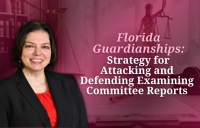Wyoming became a particular favorite because of its low cost and the fact that LLC members and managers were not required to be publicly disclosed.
However, a recent decision by the Supreme Court of Wyoming should give planners cause for concern.
In Greenhunter Energy Inc. versus Western Ecosystems Technology Inc., the Wyoming Supreme Court upheld a ruling that permitted the creditor of a corporation’s wholly owned subsidiary to make the parent company responsible for the debts of its subsidiary — an extraordinary remedy typically reserved for cases involving fraudulent conduct. The remedy rarely is permitted unless a limited liability entity is found to be the mere “alter ego” of its owner such that it would be inequitable not to make the owner responsible for subsidiary’s debts.
In Greenhunter, the Wyoming Supreme Court acknowledged that the parent company and its subsidiary maintained separate bank accounts and business records. However, the court took the unprecedented step of considering consolidated tax returns as a factor favoring the alter ego relationship and permitted the plaintiff to reach the parent company’s assets.
IRS rules allow for a singlemember LLC to be taxed as a disregarded entity. Indeed, the principal advantage of singlemember LLCs has been their recognition as offering greater limited liability benefits than a corporation, coupled with avoiding the need for a tax return. The Wyoming Supreme Court’s decision to confound tax treatment with legal liability is unprecedented and runs counter to proper application of LLC protections. This is a dangerous and surprising prospect from a state otherwise offering one of the most protective LLC statutes in the country. The ruling forces us to consider dropping Wyoming as an option for LLC formation.
Other factors should be considered as well. If stability is a concern, Delaware is a traditional choice and Nevada offers a sound alternative due to its reliance on Delaware’s longstanding body of favorable corporate law. If privacy is a concern, Delaware and Alaska are options. If the entity is to be owned by a single member and charging order protection is a concern, Nevada and Alaska offer sound legal framework. If maximum asset protection is desired, the best options are often offshore.
And, finally, one always should consider the types of assets to be owned by the LLC. It makes little sense, for instance, to use a Delaware LLC to house Florida real estate for asset protection. The practical reality is that any litigation involving the property is likely to occur in Florida, where a Florida court could be expected to apply Florida law.
Entity selection is a fluid process. As reflected by the recent Wyoming decision, the Supreme Court of a favored state can quickly throw the state’s law into a tailspin. Professional planning requires constant study and an awareness of legal trends and pitfalls.





